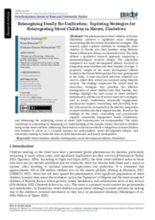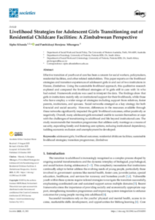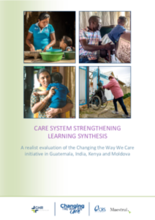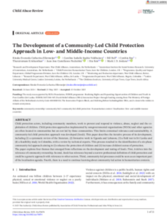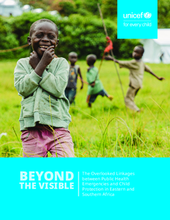Displaying 21 - 30 of 1622
This study examines strategies for reintegrating street children in Harare, Zimbabwe, into their families, highlighting the root causes of homelessness and the need for psychosocial support, counselling, family conferences, and community engagement. It emphasizes innovative, evidence-based approaches to ensure effective family reintegration and informs policymakers, social development officers, and researchers addressing child homelessness.
On October 23, 2025, the Transforming Children’s Care Collaborative hosted a webinar exploring Kafaalah—a long-standing childcare practice in Muslim communities that has been observed for more than 1,400 years.
This study explores the transition and livelihood strategies of adolescent girls in and out of institutional care in Harare, Zimbabwe, comparing 16 girls still in care with 16 who had exited. Findings reveal that girls leaving care rely on diverse social networks for survival but often struggle to sustain themselves, highlighting the need for transition programs that reduce institutional dependency, prevent early marriage, and promote economic inclusion.
This report presents findings from an evaluation by Changing the Way We Care (CTWWC) that used a realist approach to examine how care reform progressed in Guatemala, India, Kenya, and Moldova across five key system components. It identifies advocacy, government ownership, collaboration, and capacity-building as major drivers of change and offers recommendations for governments and partners to embed family care in national systems, strengthen coordination and workforce capacity, and sustain reforms through evidence, shared learning, and long-term commitment.
This paper outlines the development of a community-led child protection approach (Seeds), created through a multi-stage process involving a systematic literature review, formative research in Uganda and Lebanon, a field test in Sri Lanka, a feasibility study in Colombia, and expert review, resulting in a six-phase model designed to strengthen children’s protection and their sense of safety.
This study examines the educational experiences of children in Charitable Children's Institutions (CCIs) in Kenya, highlighting how institutional care often fills gaps left by inadequate education and other services in contexts of poverty. Findings reveal that children in CCIs face marginalization, stigma, and disrupted learning, while promising interventions include cross-sector partnerships, safeguarding training, and transitioning CCIs toward community-based support within national care reform.
Changing the Way We Care (CTWWC) is a global initiative which promotes safe, nurturing family care for children.
On October 2, 2025, Kenya’s government, civil society organizations, and child protection practitioners met with Lumos Kenya to launch “costed, holistic and systematic care reform roadmaps” and case management process plans to transition children from institutional care into family‐ and community‐based care.
This technical brief examines how public health emergencies in Eastern and Southern Africa—such as polio, cholera, Ebola, Marburg, and mpox—disrupt protective environments and increase risks of violence, exploitation, and neglect for children, including those without parental care. Drawing on lessons from multiple countries, it highlights scalable approaches to embed child protection in health responses and calls for coordinated frameworks that ensure care continuity and resilience during future crises.

